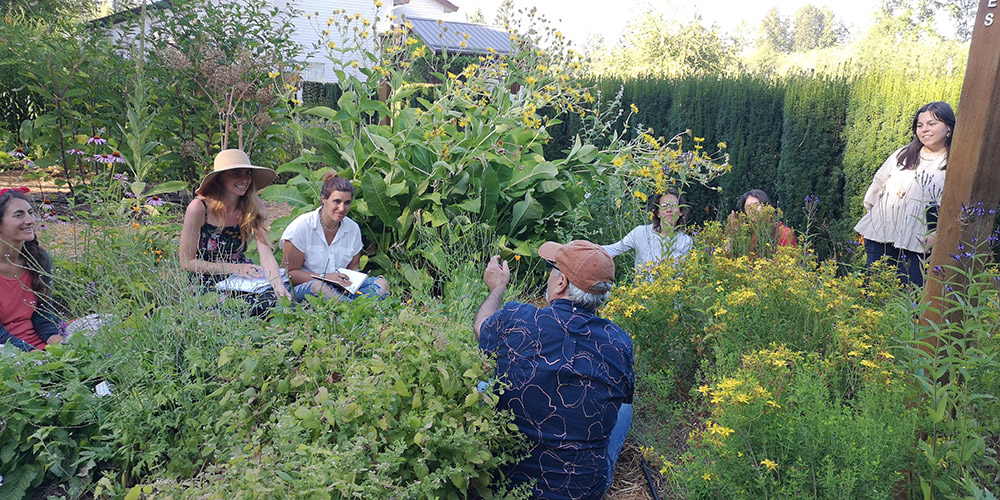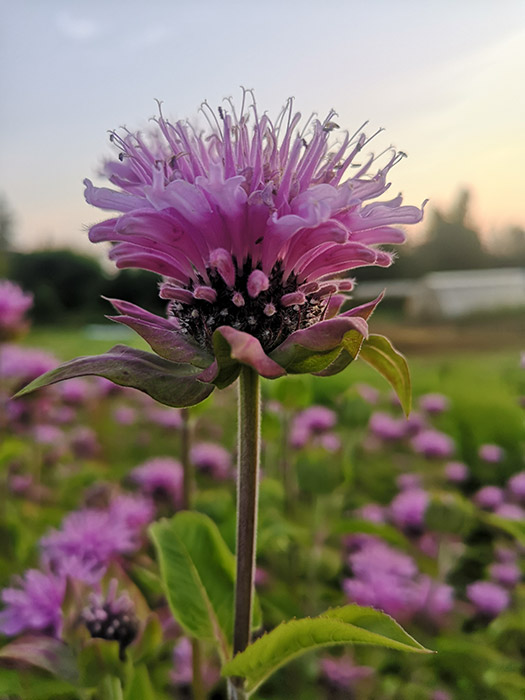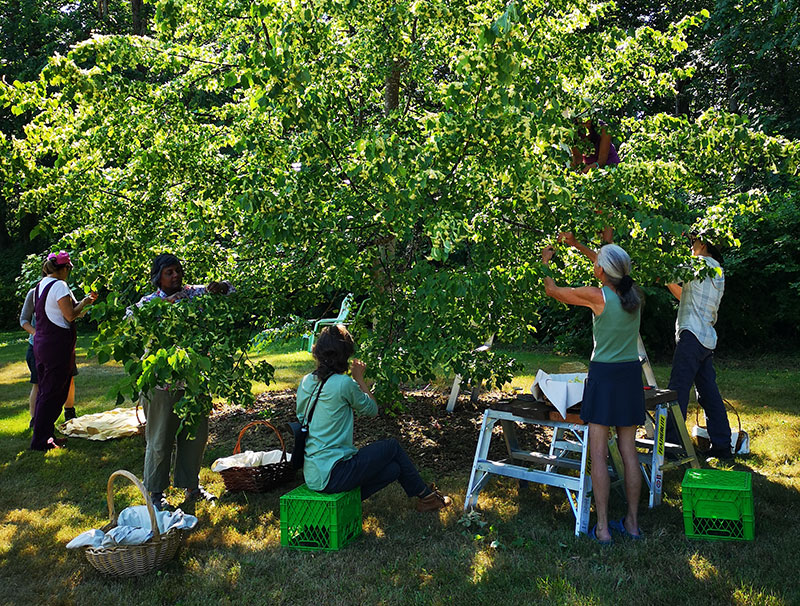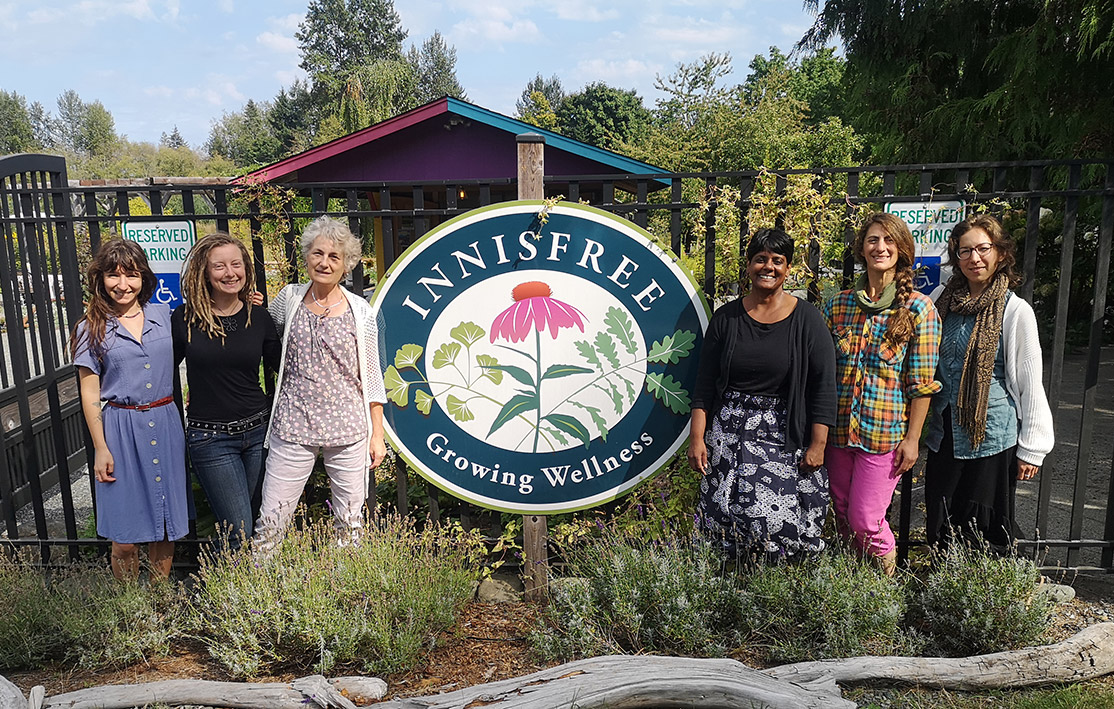FIELD TO FARMACY – A CLINICAL HERBAL MEDICINE APPRENTICESHIP
with Chanchal Cabrera, MSc., FNIMH, RH(AHG)
assisted by Thierry Vrain, Deanna Papineau, and Alina Baker
at Innisfree Farm (Vancouver Island).
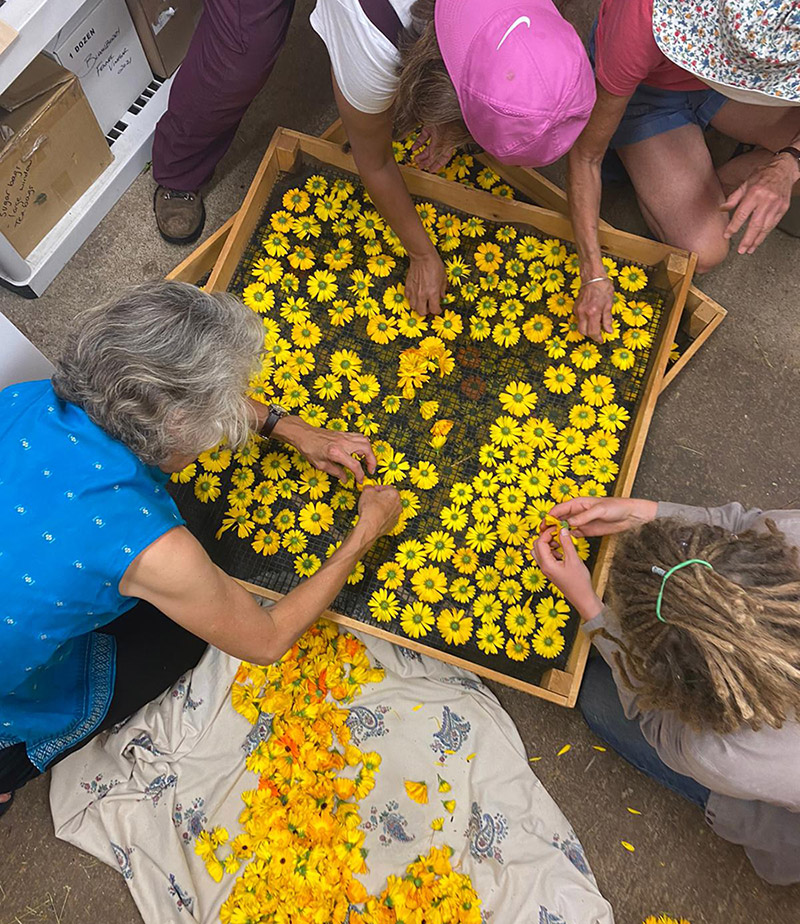
Are you already a herbalist but longing for greater connection to the plants you work with?
Are you a student of herbal medicine ready for a deep dive into materia medica and clinical applications?
Are you concerned about where your herbs are coming from and how secure they are? How can you know if they are good quality?
Do you want to learn how to grow food and medicine? Are you ready to spend a summer in the garden?
This apprenticeship is an 8-week immersive learning experience. You will learn to grow a wide range of medicinal herbs, to harvest them, process them and make your own herbal products. Extensive lectures and class time every week will open new ways of learning about plants, new ways of seeing plants, from science to art, from growing and harvesting to meditating with them, to using them for medicine.You will also learn critical information to help you assess the quality and purity of herbs and to ensure best practices in medicine making, dispensary services and small scale manufacturing.
The program includes weekly classes, tutorials, a large library with learning plans and study guides, as well as dispensary practicum, materia medica review, herbal formulating, and plant attunement activities, and hands on growing, harvesting and processing a range of herbs. This apprenticeship provides an opportunity to learn by doing, through hands-on practical experience as well as in more formal classroom lessons.
There are close to 200 medicinal plants on the farm and apprentices may work with several dozen during their program. For live in and live out apprentices, this is an opportunity to make new herbal friends and future colleagues, to have study groups, to create your own movie nights with educational films from the library, to sit with the herbs you are studying, and to immerse yourself in the world of herbs.
Applications are now open for the summer of 2025.
Not a clinical herbalist but wanting to learn how to grow and use herbal medicines?
Check out internship opportunities at Innisfree. innisfreefarm.ca/internships
